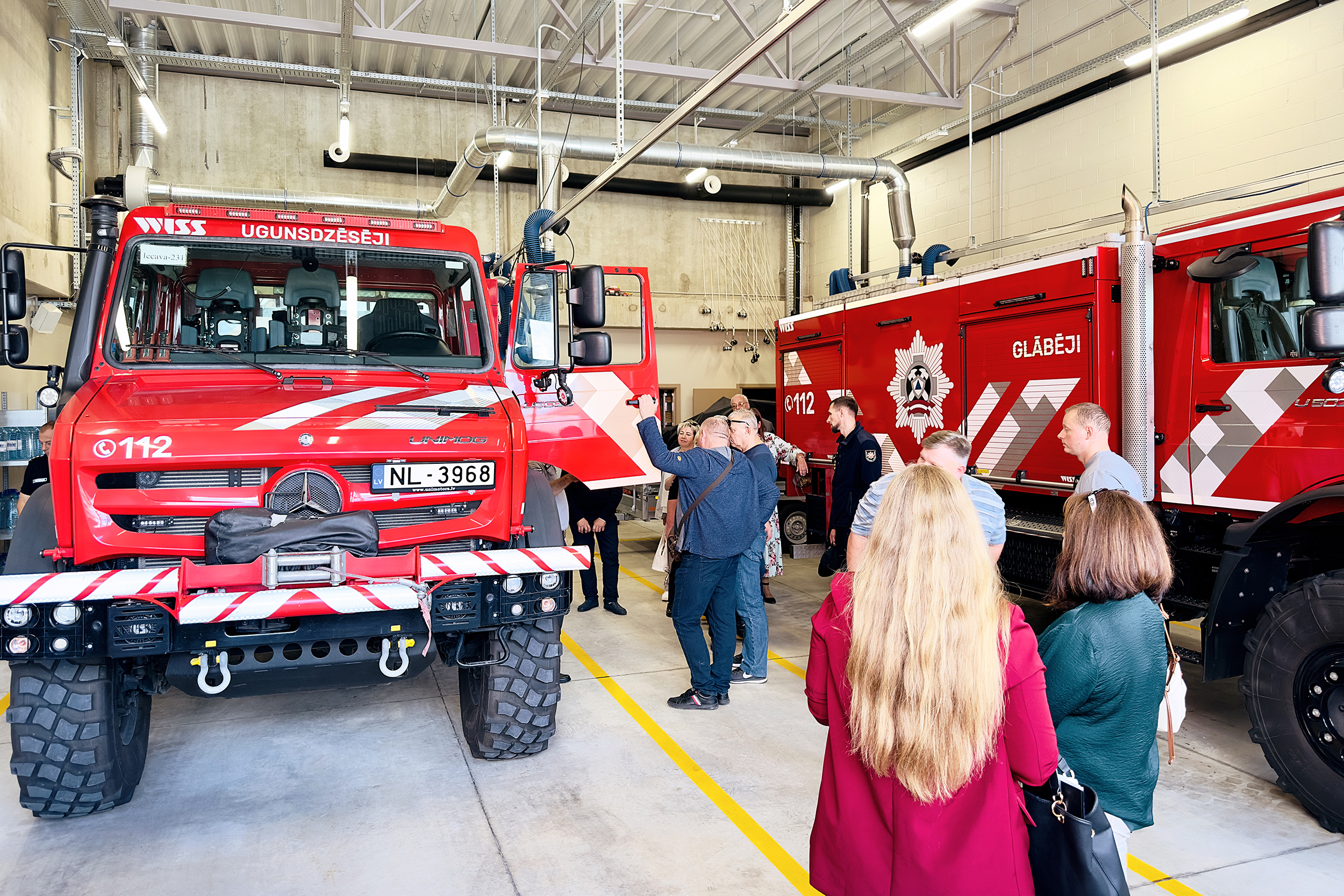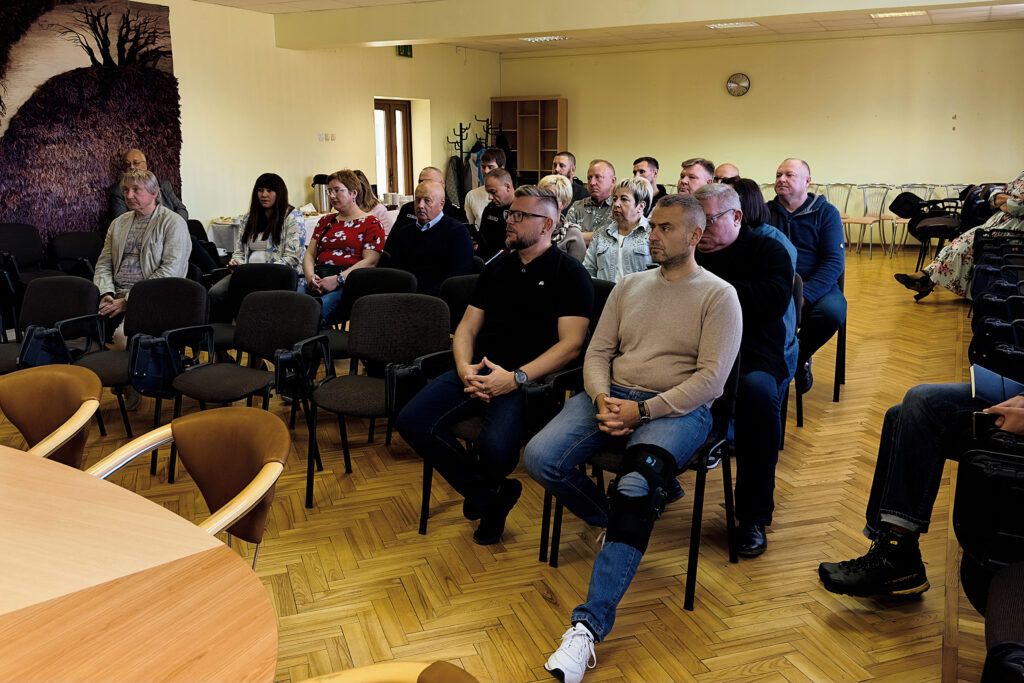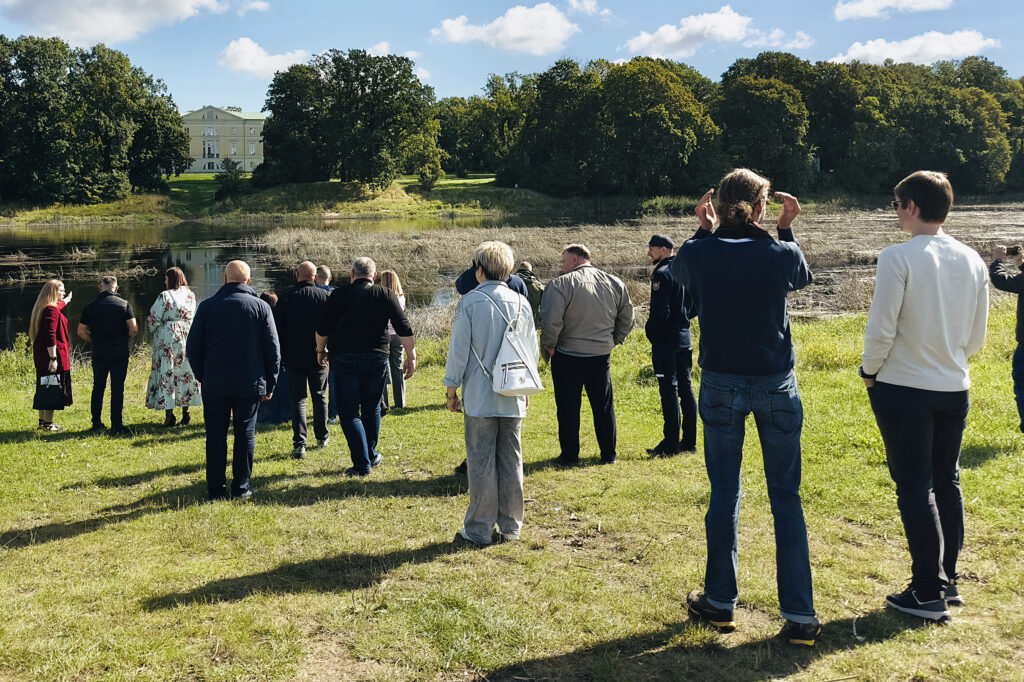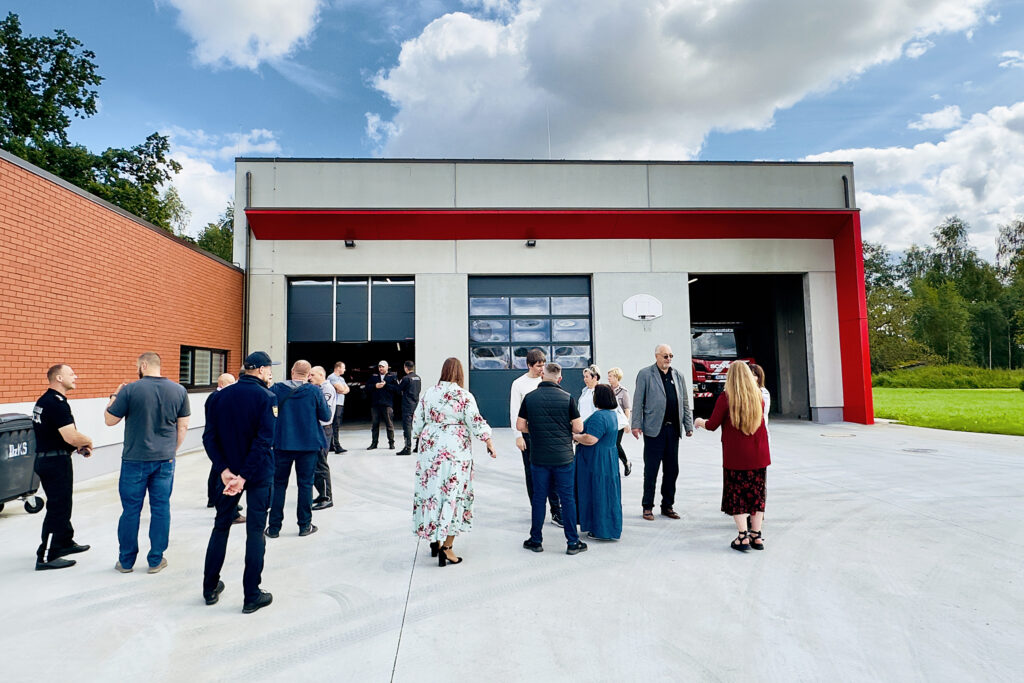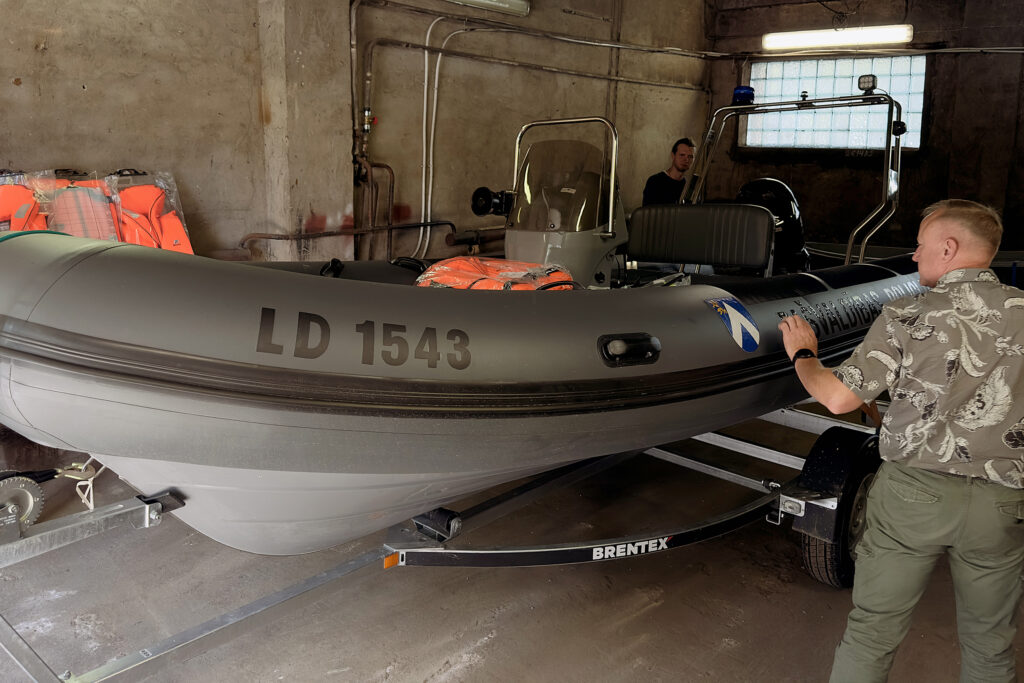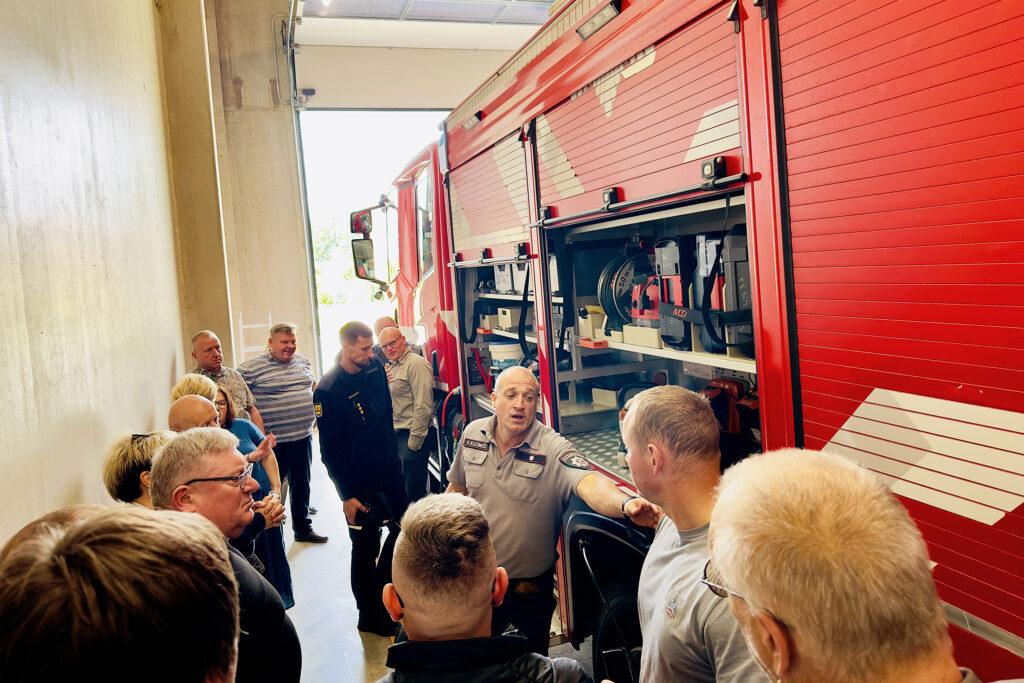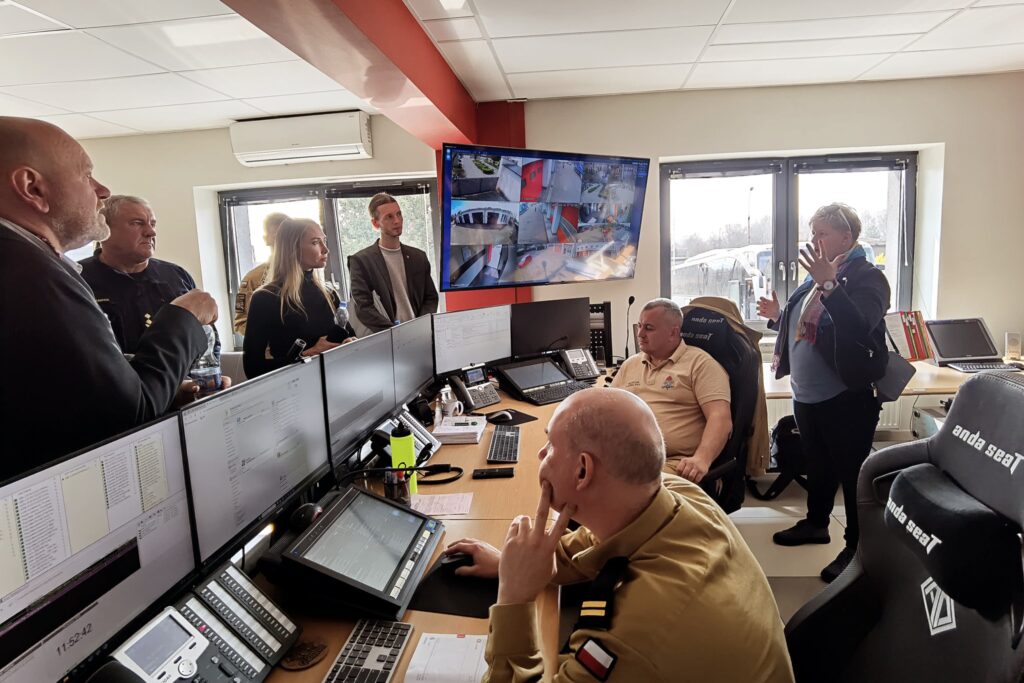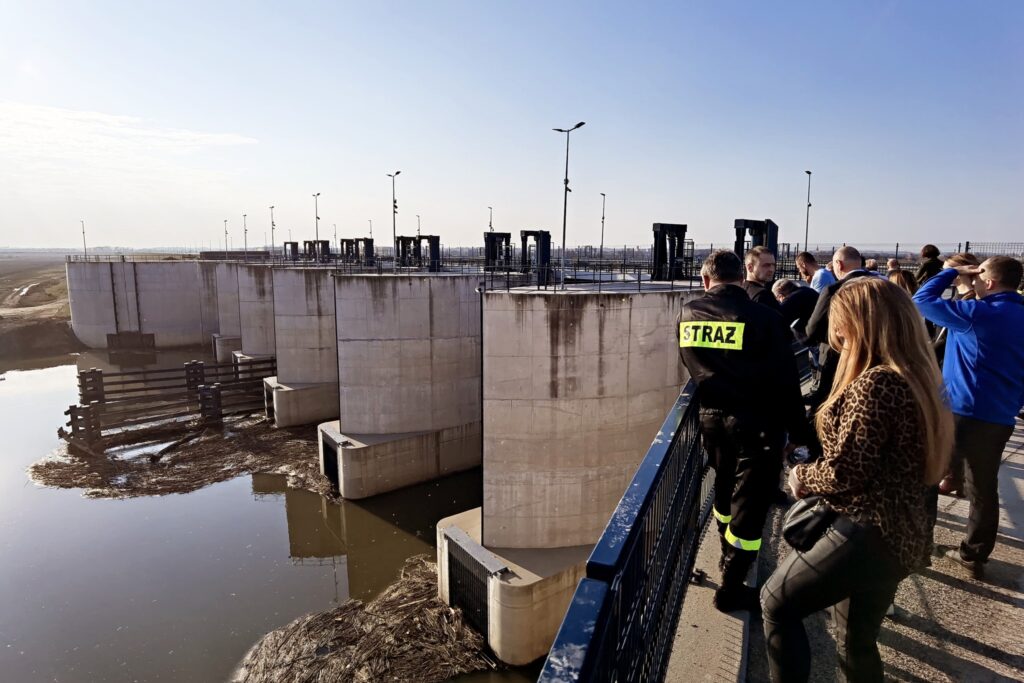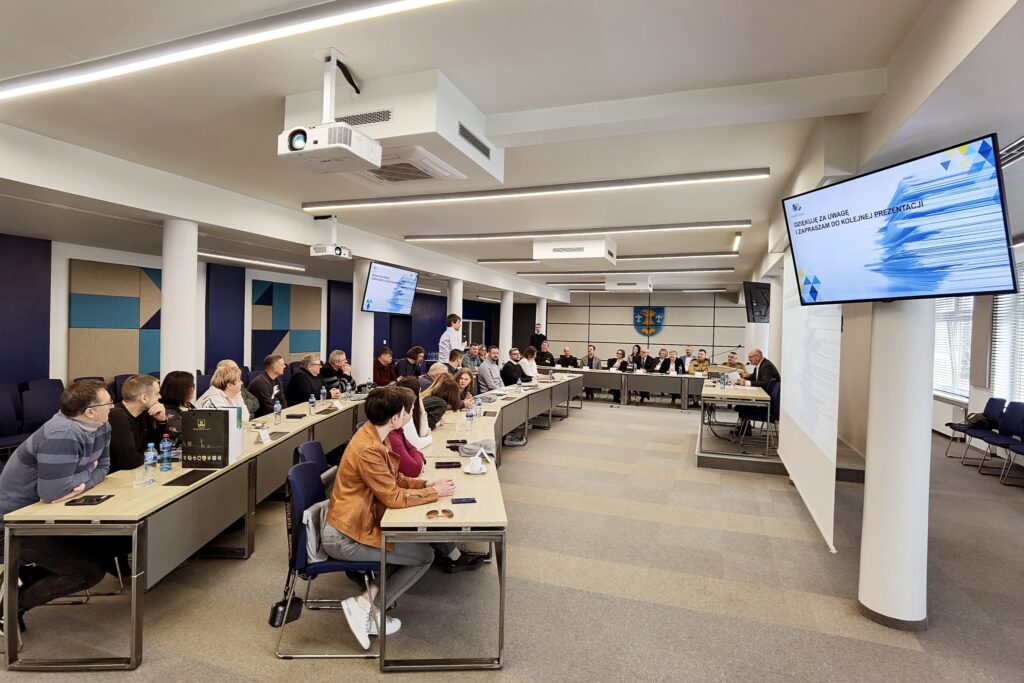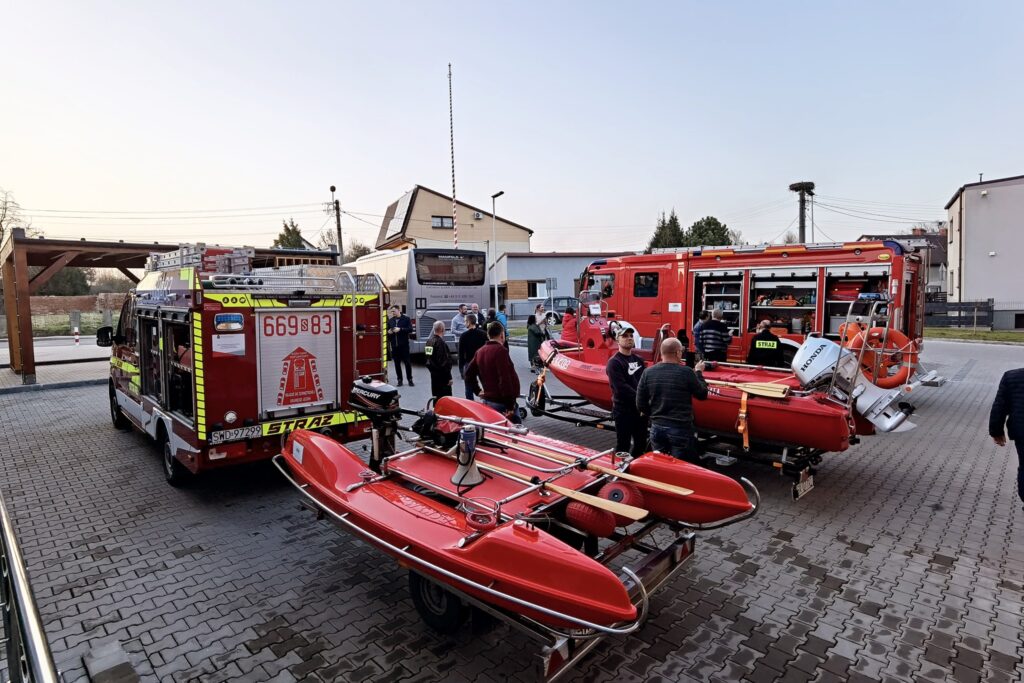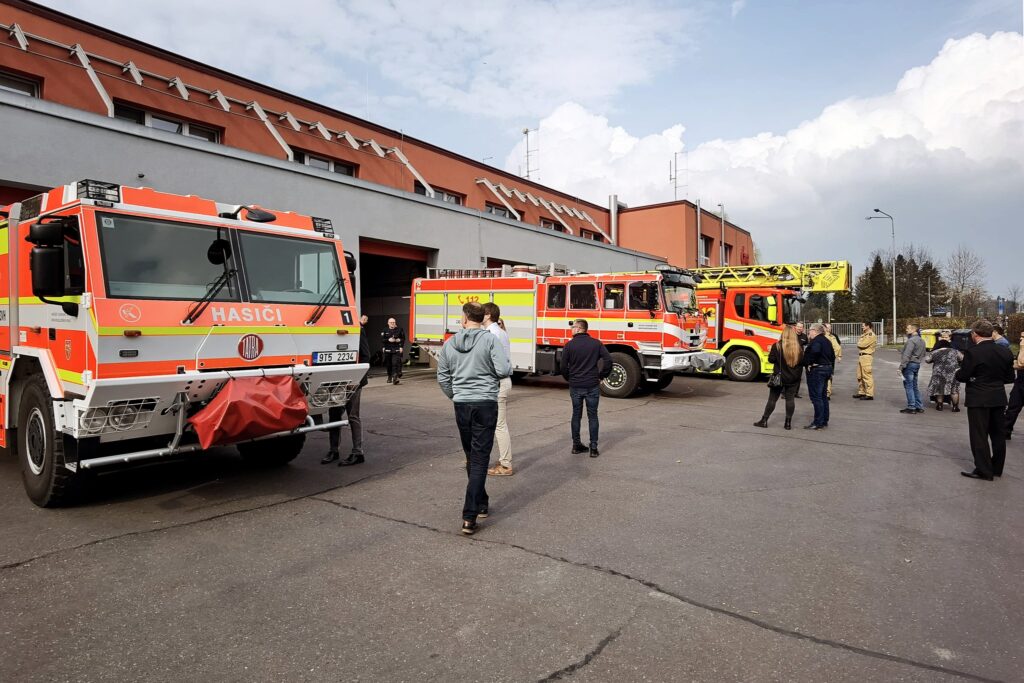Climate change does not respect national borders, and effective solutions to its challenges must therefore be cross-border in nature. Putting this principle into practice, the Interreg Latvia-Lithuania project “Safe Response” continues to foster collaboration through a series of intensive experience exchange visits. Experts from Latvian and Lithuanian municipalities, civil protection agencies, and emergency services travelled to Poland, Lithuania, and Latvia to share knowledge, learn from practical examples, and jointly build a more resilient cross-border region.
Learning from Large-Scale Solutions in Poland
The first of this period’s experience exchange visits was a trip to Wodzisław County, Poland, from March 24th to 27th. A delegation of specialists from Zemgale Planning Region, Jelgava, Aizkraukle, and Bauska municipalities, the State Fire and Rescue Service of Latvia, and Lithuanian partners, aimed to explore Poland’s approach to civil protection and crisis management.
Participants met with the leadership of Wodzisław County and specialists from its Crisis Management Centre, gaining a detailed understanding of Poland’s multi-level crisis management system. A key focus was the region’s impressive flood control infrastructure, including visits to the Racibórz Dolny flood control reservoir and the Buków polder, which protect a vast area from the flooding of the Oder River. A unique example of climate change adaptation was the story of the Nieboczowy village relocation—a complex, long-term process undertaken due to recurring flood threats and the construction of the reservoir. The visit also highlighted the significant role of volunteer firefighters in Poland’s civil protection system, with visits to several volunteer fire depots showcasing their modern equipment, including drones used in rescue operations. The insights into Polish-Czech cross-border cooperation models were particularly valuable, providing a strong example for strengthening Latvian-Lithuanian response capabilities.
Exchanging Practical Knowledge in Pakruojis, Lithuania
On June 11th, the project partners gathered in Pakruojis, Lithuania, for a focused experience exchange. The day began with presentations from the Pakruojis District Municipality, where civil preparedness specialist and other experts shared their experience in managing climate-related risks. Representatives from the Šiauliai Board of the State Fire and Rescue Department provided an overview of the local station network and their operational capacity.
The theoretical part was followed by practical demonstrations. At the Pakruojis Fire and Rescue Service station, participants were shown the available equipment and even had the chance to try a fire extinguishing simulation using a manual water pump. The group then visited high-risk flood zones, including the Pakruojis dam and the manor’s arch bridge, to discuss practical mitigation measures. A visit to the smaller Rozalimas fire team post offered insights into the daily challenges faced by rural units. The day also included a unique trip to the Petrašiūnai dolomite quarry, where the company shared its experience with the consequences of climate change and its nature restoration processes, such as planting new forests.
Focusing on Flood Risk Management in Bauska, Latvia
Shifting the focus to flood risk management in Latvia, the partners gathered in Bauska on August 27th, where a wide range of experts from Latvian and Lithuanian municipalities and emergency services convened to discuss solutions for flood risk management. The event began with presentations on the project’s progress in Bauska, highlighting targeted training programs for various community groups, including first aid and stress management for municipal police, as well as civil protection training for municipal employees and local students.
To understand the situation on the ground, participants visited two flood-affected sites. The first was the steep bank of the Mēmele River near Bauska Castle, where increased rainfall has intensified erosion, posing a long-term risk to the historic monument. The group then visited the Lielupe riverbank near Mežotne, a site prone to ice jams during spring floods, where the municipality has already begun river cleaning works co-financed by the projects. The practical part of the day continued at the new post of the Bauska Municipal Police, where equipment purchased with “Safe Response” funding—including a new rescue boat with a trailer, a drone, a powerful water pump, and a shelter tent—was demonstrated. The day concluded with a visit to one of the most modern fire depots in Zemgale, the post in Iecava, where an innovative on-site water basin for operational refilling impressed the visitors, demonstrating effective resource planning.
This intensive period of knowledge sharing has been a significant step towards creating a unified and effective response system throughout the Latvia-Lithuania border region. The insights gained from analysing real-world risks and assessing the practical capacity of emergency services will serve as a foundation for future work in building a safer and more resilient community.


